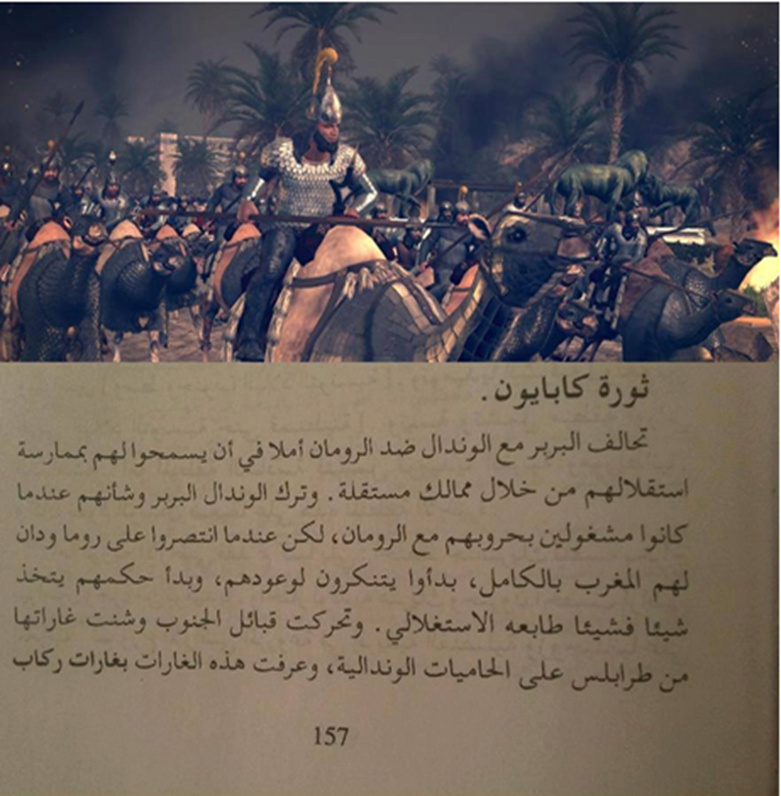?Did the Arabs really liberate the Amazighs from Byzantine colonialism

Among the lies promoted by the Arabs in their books is that when they arrived in North Africa, they found the Amazighs colonized by the Byzantines and that they liberated them from Byzantine colonialism, but in fact the Byzantines at that time only controlled some coastal cities and the rest of North Africa was free under the control of the Amazighs. At that time, the Amazighs were close to expelling the Byzantines from their land, and only some pockets remained of them as a result of the multiple revolutions.
The revolution of Commander Yabdas, leader of the Auras tribes, and Kotzinas, leader of the tribes of southern Tunisia, then the coup of Commander Antilas from the year 535 AD to 597 AD
The heroic Amazigh leader Kabayon, leader of the Luwata tribes, revolted against the Vandals in 523 AD
The revolution of the Berber hero Antilas against the Vandals in the year 530 AD

Karkasan Revolution in 547 AD against the Byzantines
The revolution of the Amazigh leader Garmul in the year 565 AD to 578 AD and the beginning of the end of Byzantine colonialism in North Africa
This great revolution, which lasted 12 years of struggle, is considered the final blow against Byzantine colonialism, which lost all its fortifications and military fortifications in North Africa, and even forced the Byzantine settlers to flee to Spain, and the most important thing is the political separation of North Africa from the Byzantine Empire.
The leader of this revolution is Garmoul, king of Mauritania (central and western Algeria, in addition to the present-day Al-Aqsa Morocco, whose capital is Cherchell).
First: The army of Commander Theodore, who was killed and crushed with his army in the year 569 AD
Second: The army of the Byzantine leader Teuktisyon, who was killed and crushed with his army in the year 570 AD
Third: The army of the Byzantine commander Amabilis, who was killed and crushed with his army in the year 571 AD

This revolution ended in the year 578 AD, following a deception by the Byzantines, who asked for peace and negotiations with the revolutionaries. When the tribal leaders came with Garmoul in their midst, the Byzantine commander Janados attacked Garmoul, who was martyred as a result of this deception.
But despite the martyrdom of the hero Garmoul, the Amazighs continued to fight the Byzantine enemy without relenting, and history recorded another popular revolution between the year 595 AD to 596 AD that ended with the same deception, i.
In the midst of these revolutions, the Byzantine entity, which retreated, was shaken and began to suffer from new battle fronts, such as the revolution of the Slavic countries in Eastern Europe, and the spread of decay and bribery among the rulers, where it ended with military coups that greatly weakened the Byzantine Empire, which ended with division and independence through Ifriqiya, a watercress or Gregory, from Byzantium and its formation of a state Its capital was Sbeitla, southwest of Tunisia, from the year 607 AD to the year 646 AD
First: The Amazighs did not ask for help or help from the Arabs to liberate them from the Byzantines, because they were about to disappear after the strong blows they received from the Amazigh revolutionaries.

Second: The Arabs did not come to the aid of the Amazighs or to spread Islam. Rather, they came to plunder the property of the population, shed their blood, and take the captives and slaves. They were not interested in liberating the land of the Amazighs, but rather their goal was to own the prey on their own. Is it the liberation of a people that is done by shedding the blood of its men, taking its women as captives and taking its children as slaves, and robbing its property unjustly?
What belies their words and their testimony is that the army of the conquering Arabs found fierce resistance from the Amazighs under the leadership of King Axel, and after him Queen Tahia, whom they called shrewd.
Source: websites

